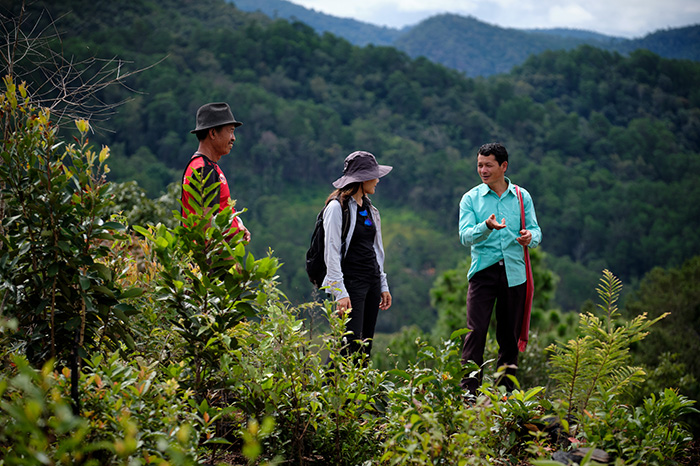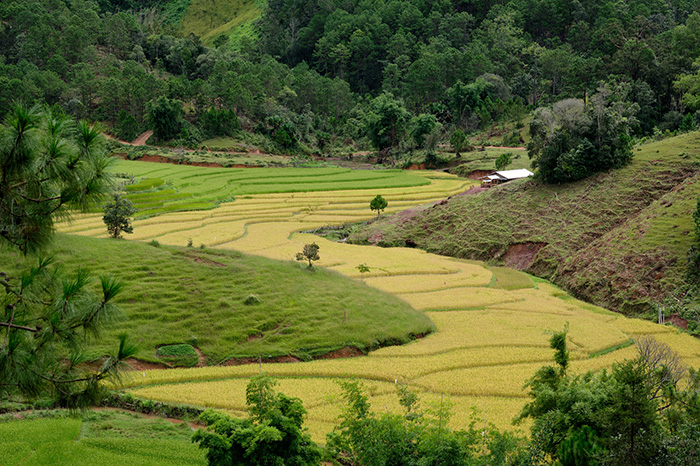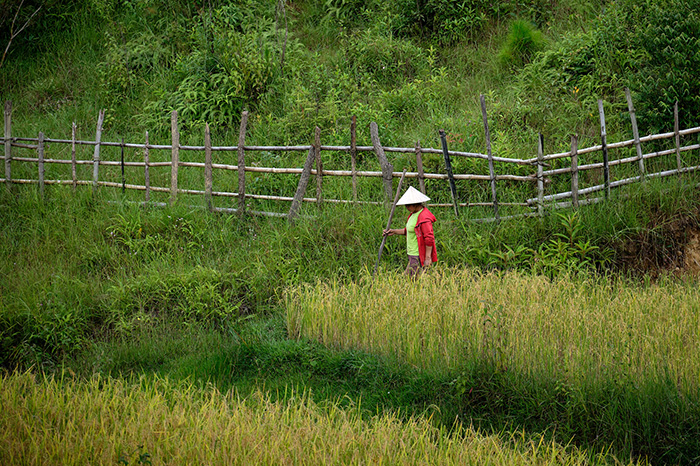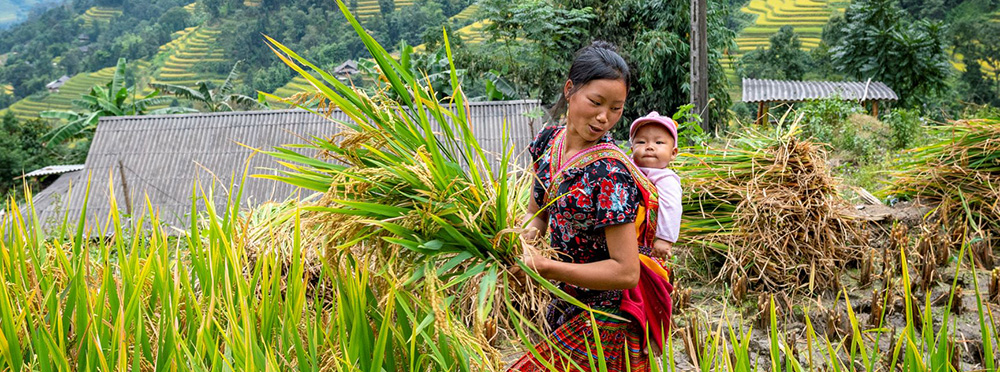Three years after its second edition in Bangkok, the 3rd Forum on the Mekong region land governance (MRLG, 2021) was held online on 26 and 27 May last. The focus of this year’s edition was “the Mekong Forest land governance: promoting recognition of customary rights and responsible investment practices”.
This event, co-organised by GRET’s Mekong Region Land Governance (MRLG) project and the Land Portal, brought together 300 participants from governmental agencies, the private sector, NGOs, development agencies and research institutes in the Mekong countries (Cambodia, Laos, Myanmar, Thailand, Vietnam) and other countries. The participants took part in national case studies and in indepth, interactive debates on land tenure security issues and challenges in forest areas in South-East Asia, and on the impact of agro-industrial investments.
Small farms at the core of land tenure issues
“Across the world, recent upheavals due to the Covid-19 pandemic have highlighted the dependency of communities in the Mekong region on land and forest resources. Although rapid growth in land investments created new opportunities for economic growth and rural development, it has also led to significant social and environmental impacts, particularly by displacing small farms”, explains Dr. Micah Ingalls, team leader with the MRLG project. “What is essential here, but often not widely known, is that small farmers really drive economic growth in agriculture, and are by far the largest private sector investors in the region. National policies and development policies should first and foremost provide responses to the preoccupations of these producers.”

Despite significant progress in securing land tenure and access in the Mekong region, much remains to be done today, particularly concerning recognition of customary occupation rights in forest areas, and opportunities, risks and challenges related to agro-industrial investments. Since 2018, during phase 2 of the project, the Vietnamese government, in partnership with the Vietnam Administration of Forestry and the General Department of Land Administration, set up two bodies to work with inhabitants in forest areas: the Alliance for recognition of customary land regimes and the Alliance for responsible agricultural investment.
Based on the new law on forests, ratified in 2017, the Alliance for recognition of customary land regimes is supporting allocation of forest plots to local communities, taking an approach involving co-management and protection of forests, focusing on vulnerable groups, in particular women and ethnic minorities. Several pilot projects have been implemented in this way, in particular the model for co-management of lobster conservation in Quang Binh, promotion of the Shan tea brand with the Dao group in Hoa Binh, and the development of a dried bamboo shoot brand with the Ma Lieng group in Tuyen Hoa, Quang Binh.

Structuring organisations and sharing knowledge
“In collaboration with the MRLG project, we are going to publish a manual on the allocation of forest land and community-based management of forests. This document combines legal regulations on community-based management of forests and the lessons learned from management models that have already been implemented. The manual will be widely shared with communities, local authorities and forest rangers throughout the country. It will be a useful tool to help provinces manage forest land more efficiently and improve populations’ livelihoods. We believe the publication of this manual will contribute to the promotion of the community-based forest management approach”, says Le Dinh Thom, deputy director of the department of forest protection.
The Alliance for responsible agricultural investment aims to contribute to the amendment of the 2013 Vietnamese land law, in order to guarantee and promote small farmers’ land rights within the legal framework and the market economy.

In the past, the MRLG project successfully organised two regional land forums, the first in Hanoi in 2016 and the second in Bangkok in 2018. This new forum was an opportunity for the members to follow the changes initiated in land policies and practices in Vietnam. In addition to round tables, small group sessions were open to participants to discuss how to promote frameworks for good land governance in the Mekong countries, such as contractual agriculture, free, prior, informed consent (FPIC) and ASEAN guidelines on responsible agricultural investment in food, agriculture and forestry (ASEAN-RAI).
“Today it is necessary to link the ASEAN-RAI with national laws providing the legal framework for the private sector. In the meantime, as with the Vietnam Forest Certification System (VFCS) or the programme for the endorsement of forest certification (PEFC), the ASEAN-RAI should be used in the system of certification by consent. Otherwise, a distinct certification system for the ASEAN-RAI should be established”, says Dr. Tran Thi Thuy Hoa of the Vietnam Rubber Group.



